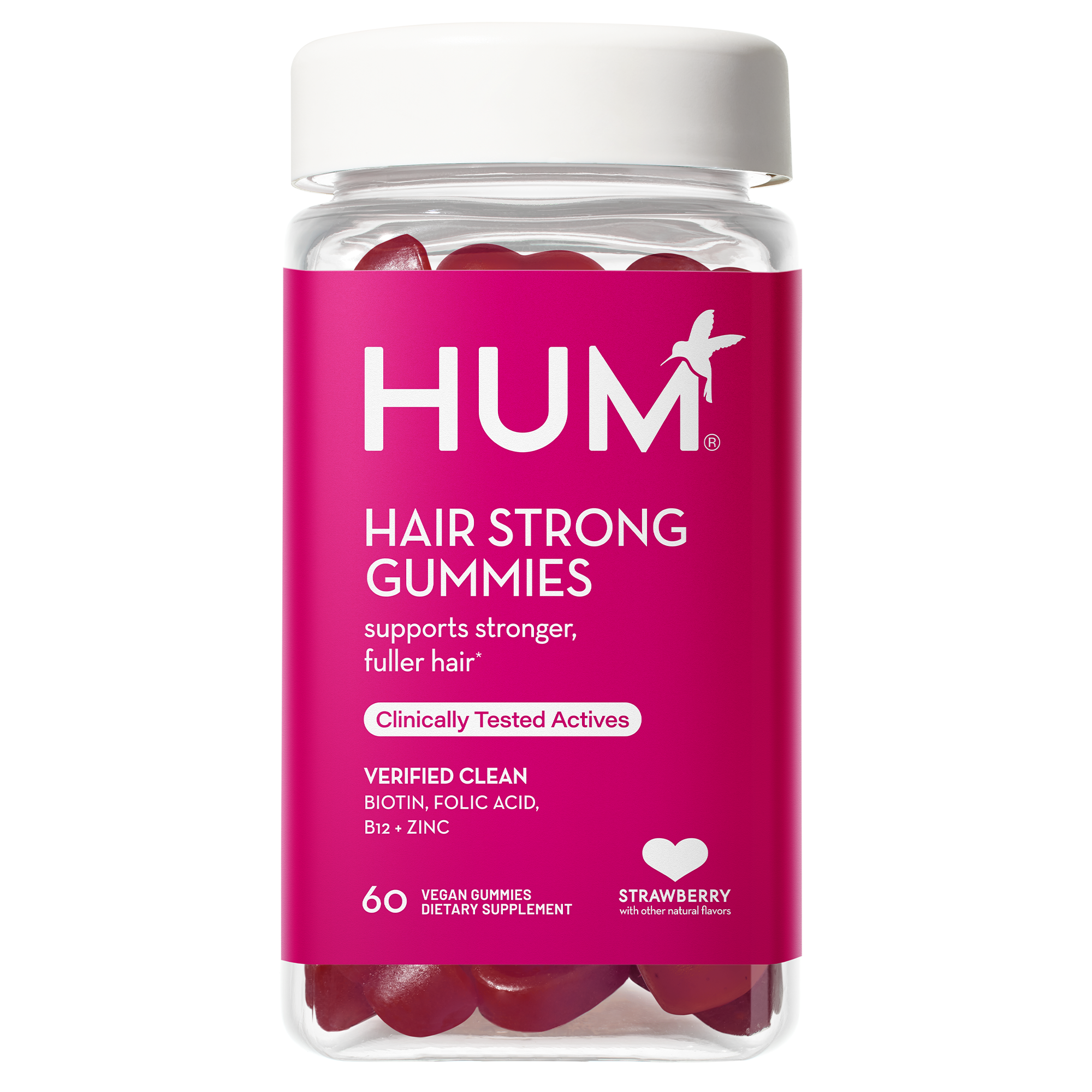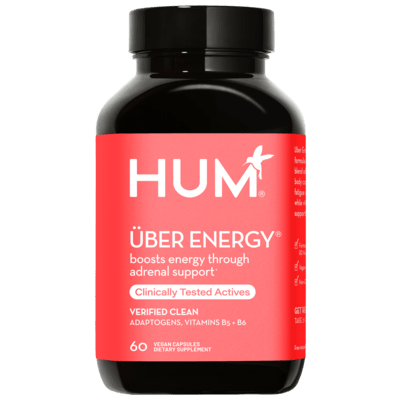7 Symptoms of Male Hormonal Imbalance You Should Know
Carrie Gabriel, MS, RDN, shares what you need to know about male hormonal imbalance. Included: symptoms, potential causes, and hormone-balancing tips.
Feeling constantly exhausted, irritable, cold, or noticing changes in libido and even your hair? These could be signs of hormonal imbalance in men. Wait, do men have hormonal imbalances? The answer is yes: While fluctuating hormones are often associated with women, men experience hormonal imbalance, too—and it can impact various areas of their health. However, the lack of conversation around this topic of hormone imbalance in men leaves many people in the dark about common symptoms they experience.
Keep reading to learn more about male hormonal imbalance symptoms and how to manage them through nutrition and balancing macronutrients, and a healthy exercise and mental health routine.
What Is A Hormone Imbalance in Men?
A hormone imbalance occurs when the body produces too little or too many essential hormones. These imbalances often affect the sex hormones, including testosterone for men and estrogen for women.
Hormone imbalances can lead to a number of health issues. That’s why it’s important to detect and treat them quickly.
Further, male hormones most prone to imbalance include:
- testosterone
- growth hormone
- cortisol
What Causes Hormonal Imbalance in Males?

In many cases, hormonal imbalances are caused by stress, medications, and nutrition.
Hormonal imbalances can also be caused by medical conditions—especially those that involve the endocrine system or glands.
The most common causes include:
- Andropause: an aging-related change in the hormone testosterone that can affect sex drive, mood, and muscle mass.
- Hypothyroidism: a condition in which the thyroid is underactive, which may cause fatigue, weight changes, muscle aches, depression, or constipation.
- Hyperthyroidism: the opposite; a condition in which the thyroid is overactive, potentially causing hair loss, unexplained weight loss, fatigue, irritability, and increased sensitivity to cold or heat.
- Adrenal fatigue: an insufficiency in the adrenal gland to produce adequate hormones, resulting in symptoms like body aches, weight changes, hair loss, or skin discoloration.
7 Symptoms of Hormonal Imbalance in Men
For starters, there are certain tell-tale signs of imbalanced hormones in both men and women.
These include:
- fatigue
- mood fluctuations
- weight gain or loss
However, symptoms of hormonal imbalance particular to men are listed below.
1. Low Sperm Count
Low sperm production (or a complete lack thereof) or abnormalities in sperm function may be a sign of hormonal imbalance.
The most common causes of issues associated with male fertility include problems that affect how the testicles function. Additionally, blockages in the male reproductive organs can also negatively impact fertility.
Unfortunately, in about 60 percent of all cases, the primary cause of male fertility issues can’t be determined.

2. Hair loss
According to the National Institutes of Health (NIH), hair loss affects an estimated 80 percent of men by the age of 80.
One cause of men’s hair loss is the shrinkage of hair follicles (on account of androgen receptor gene dysfunction). As a result, this negatively impacts the hair growth cycle. New hairs gradually become finer until no hair remains and the follicles become dormant.
Tip: Get more hair-healthy nutrients in your routine to promote your hair’s length, strength, and color.
3. Loss of muscle mass
There’s a strong connection between low testosterone, elevated estrogen levels, and weight gain in men. As they age, men often experience an increase in body fat—especially in the abdominal area—as well as a decrease in muscle mass.
Research shows if people experience increased stress combined with inadequate nutrition and physical activity, muscle mass loss is more likely to occur.
4. Memory loss
Men can experience memory loss during the early stages of andropause, which is often referred to as the male menopause, even though it doesn’t work in quite the same way as menopause does. (Testosterone production starts to naturally decrease around the onset of andropause.)Studies show that men have a greater likelihood of developing cognitive impairments than women do. Men also generally experience such symptoms at an earlier age than their female counterparts.
5. Inconsistent Erections
Another symptom of hormonal imbalance is when a man has a difficult time getting or maintaining an erection firm enough for sexual intercourse.
Increased prolactin (a hormone made by the pituitary gland) can cause this issue. Additionally, other sources that can lead to this symptom include too much or too little thyroid hormone and hormones used to improve prostate health.

6. Reduced Sex Drive
Weakened testicular function (aka male hypogonadism) is a result of low testosterone levels. This symptom of male hormonal imbalance can lead to:
- loss of sex drive and function
- delayed puberty
- significant bone weakness
This condition can eventually lead to a failure of the testes to produce sperm. Additionally, too much iron in the blood can cause testicular or pituitary gland dysfunction, which affects testosterone production.
7. Enlarged Breast Tissue
Also known as gynecomastia, this sign of hormonal imbalance is an overdevelopment of the breast tissue in men. In this case, the breasts become larger and often grow unevenly.
Changes in levels of the female hormone estrogen and the male hormone testosterone can potentially lead to this issue.
How to Balance Hormones Naturally
On account of today’s fast-paced lifestyle, hormonal imbalance is increasingly common. As we can see, it’s clear that certain hormones decline with age and some people experience a more dramatic decrease than others do.
Fortunately, a nutritious diet and other healthy lifestyle habits can help improve your hormonal health and allow you to feel and perform your best.
Here are a few tips on how to treat hormonal imbalance and naturally help balance hormones in men.

Eat Protein at Every Meal
Consuming an adequate amount of protein at each meal is extremely important, as protein influences the release of hormones that control appetite and food intake.
Eating enough protein can decrease levels of ghrelin (aka the hunger hormone) and stimulate the production of hormones that help you feel full.
To optimize hormonal health, aim to consume a minimum of the recommended 20 to 30 grams of protein per meal.
Avoid Sugar + Refined Carbohydrates
Research shows that insulin resistance is driven by diets high in sugar and refined carbohydrates.
Avoid these foods and/or reduce overall carb intake to help decrease insulin levels and increase insulin sensitivity.
Consume Healthy Fats
To bounce off of the point above, you can also help reduce insulin resistance by including healthy fats in your diet. (Additionally, avoid unhealthy fats such as trans fat.)
For instance, since fatty fish, avocado, and nuts are rich in healthy fats, they’re among the best foods for hormone balance.
In addition, this macronutrient helps keep your heart healthy. Plus, when we consume healthy fat at meals, it triggers the release of hormones that help us feel full and satisfied.
Exercise Regularly
Staying physically active on most days—through the likes of strength training, walking, or aerobics—can modify hormone levels in a way that could affect mood, libido, and energy levels.
Exercise also protects muscle mass throughout the aging process.
Work on Managing Stress
Lastly, stress can wreak havoc on your hormones. For that reason, try to incorporate stress-reducing activities to your self-care routine, such as:
- meditation
- yoga
- massage
- listening to soothing music
Incorporating calming activities such as these into your regular daily routine can help naturally balance your cortisol levels and effectively reduce stress over time.












